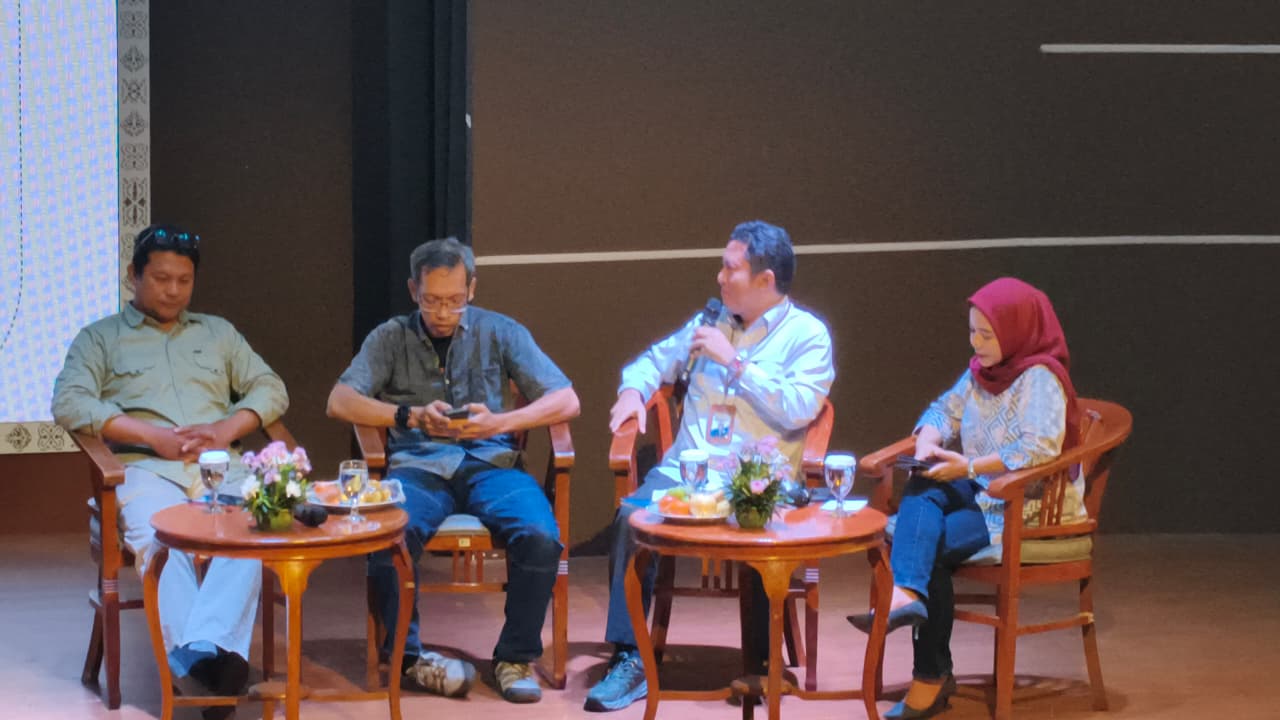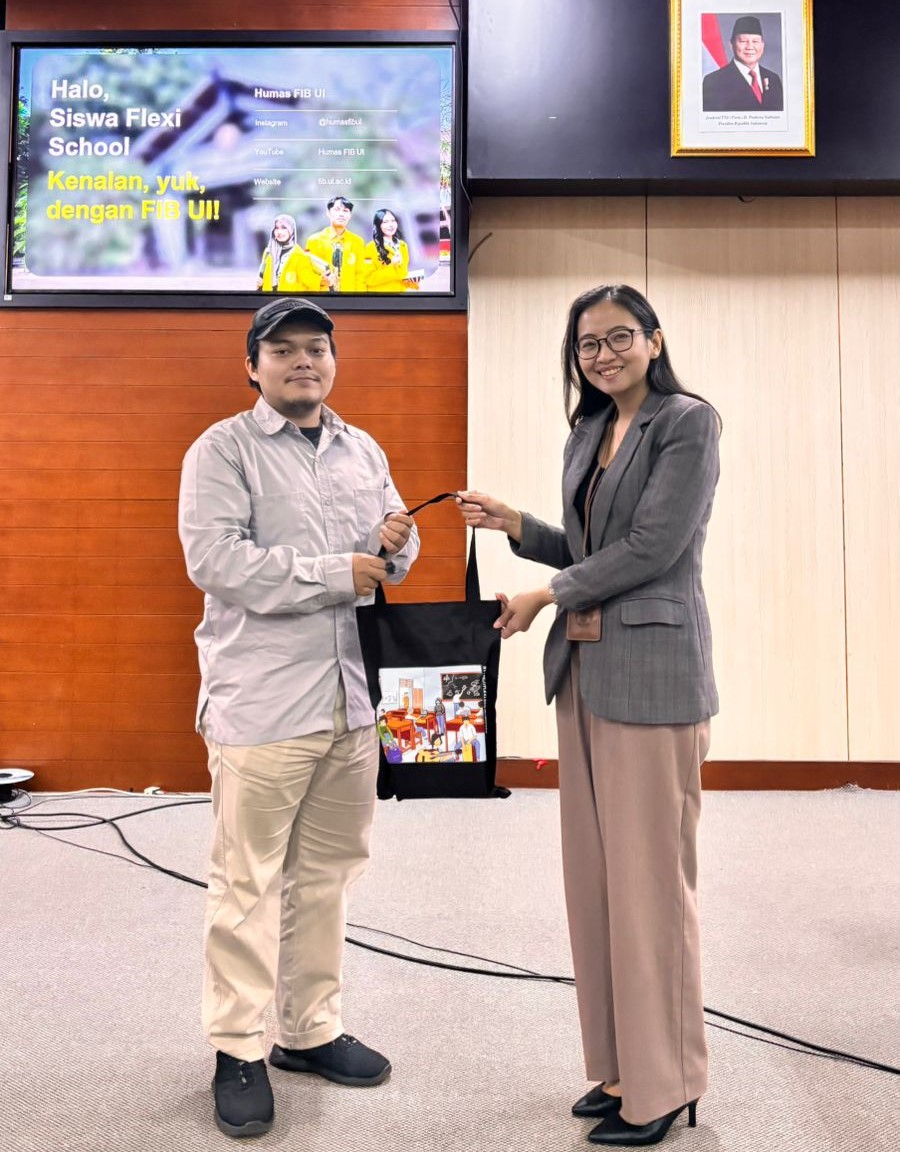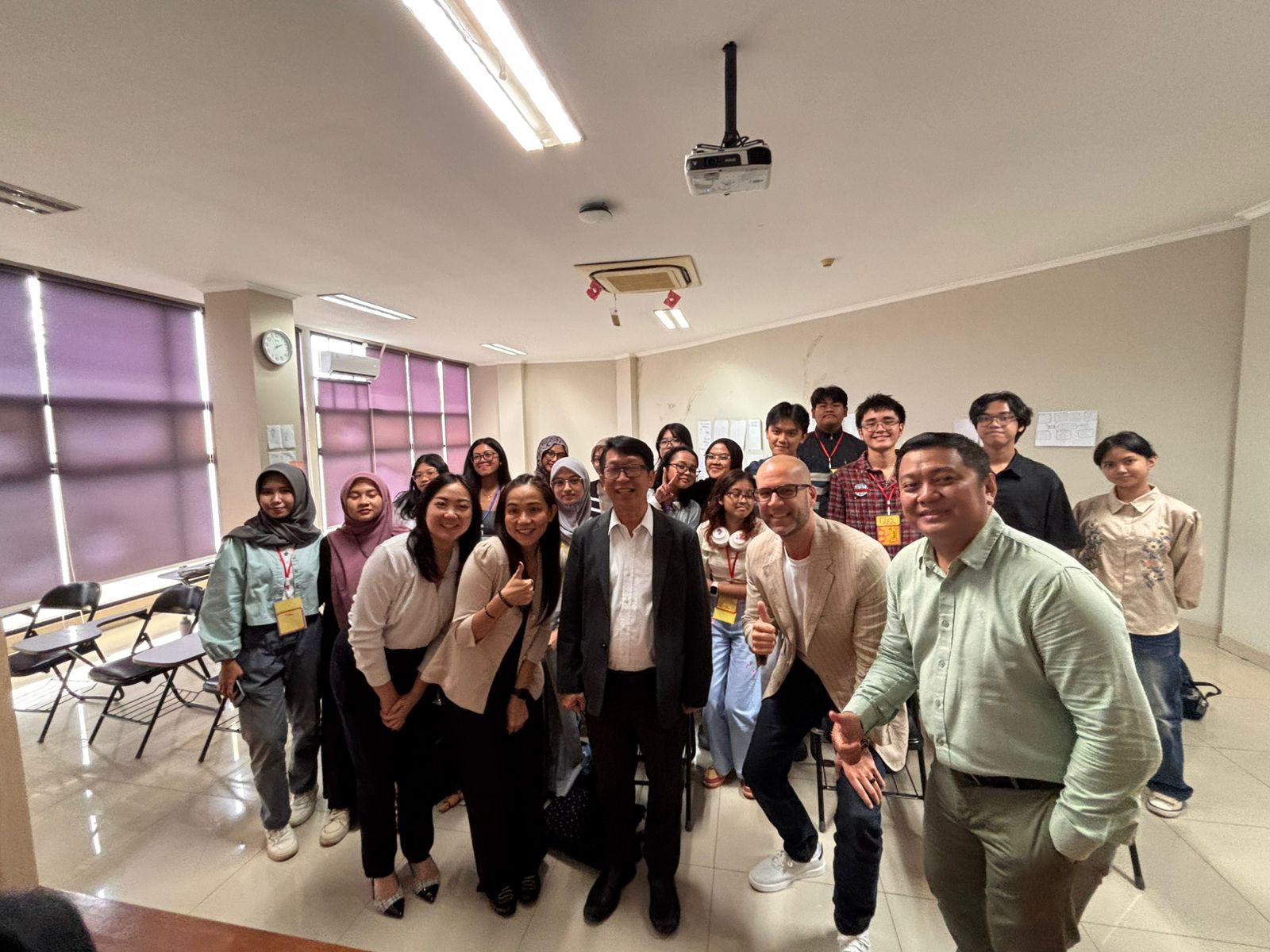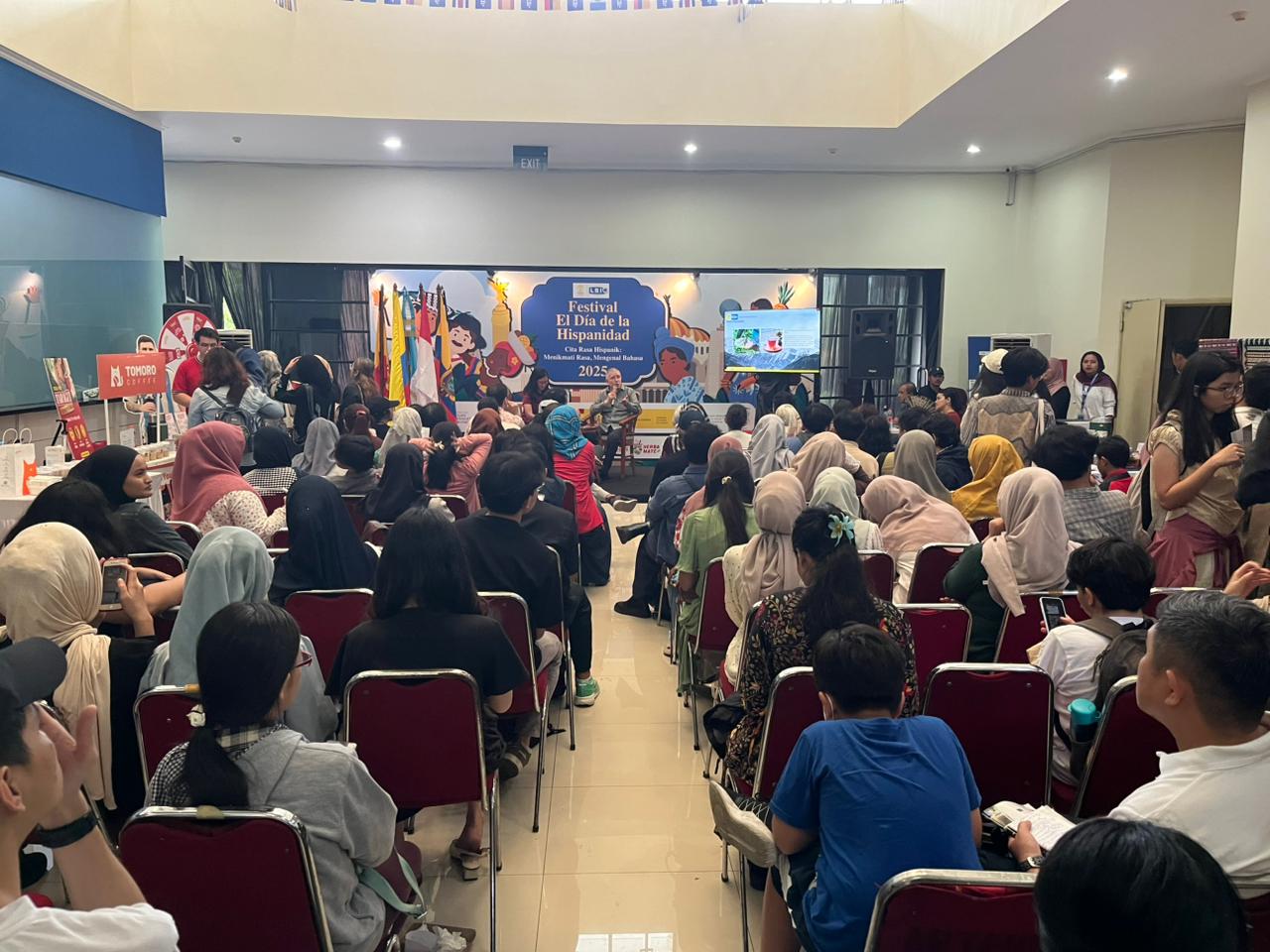The Faculty of Humanities (FIB) of the Universitas Indonesia, in collaboration with the Ministry of Marine Affairs and Fisheries (KKP), held a public discussion on the theme “Sustainable Economic Pillars of the Banda Neira Coastal Community: Integration of Archaeology and Maritime Culture” on Tuesday, October 21, 2025, at the Soe Hok Gie Auditorium, Building IX Sapardi Djoko Damono, FIB UI.
This event brought together experts and stakeholders from various institutions to discuss the potential integration of archaeological studies and maritime culture in supporting the strengthening of the coastal community’s economy in Banda Neira.
The event began with remarks from the Acting Dean of FIB UI, Dr. Taufik Asmiyanto, M.Si., and remarks from Prof. Dr. R. Cecep Eka Permana as Head of the Department of Archaeology, FIB UI. The keynote speech by Ir. Koswara, M.P, Director General of Marine Management at the Ministry of Marine Affairs and Fisheries, emphasized the importance of collaboration between academics, government, and local communities in developing a sustainable coastal resource management model. Other speakers who participated in the discussion included Dr. Muhammad Farid, M.Sos (Rector of Banda Neira University), Dr. Ali Akbar, M.Hum (Lecturer at the Archaeology Study Program, UI), Enggar Sadtopo, S.T., M.T (Director of Maritime Services, KKP), and Dr. Kastana Sapanli, S.Pi, M.Si (Lecturer at ESI FEM IPB University). The discussion was moderated by Dian Sulistyowati, S.S., M.Hum, Lecturer at the Archaeology Studies Program, FIB UI.
Through this forum, FIB UI and KKP sought to encourage the use of archaeology and maritime cultural heritage as a basis for developing a creative economy based on local wisdom. The discussion also opened up space for the formulation of strategies for empowering coastal communities that focus not only on economic aspects, but also on the preservation of the cultural heritage and maritime history of the archipelago.
The speakers presented various ideas related to the potential management of cultural heritage, archaeological historical relics, and the potential of the Banda Neira marine ecosystem as pillars of a sustainable economy. One of the important points discussed was how sustainable culture-based tourism can have a positive impact on the local economy, while preserving local wisdom and historical values. The main theme also involved the success of Banda Neira as a tourism destination that integrates culture and the marine ecosystem to improve the welfare of coastal communities.
The discussion also shows the importance of developing public policies that support sustainable and community-based tourism models, involving collaboration between the government, academics, and local communities in the development of environmentally friendly tourist destinations.
The Faculty of Humanities (FIB) at the Universitas Indonesia has long been one of the institutions actively involved in the development of archaeology and cultural studies, as well as playing a role in various community empowerment efforts through scientific studies and empowerment programs based on local wisdom. The Ministry of Maritime Affairs and Fisheries (KKP) is also highly committed to preserving the sustainability of Indonesia’s coastal resources through policies that support conservation and coastal community empowerment. This discussion is part of these efforts, which aim to create innovative and sustainable solutions for the management of Indonesia’s coastal resources. (Trans-RMRW)




